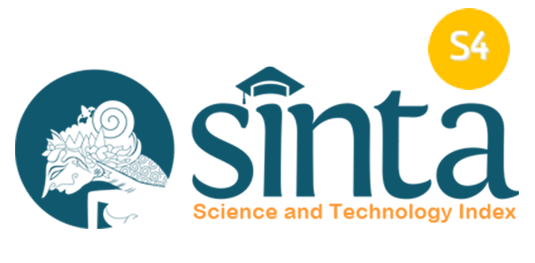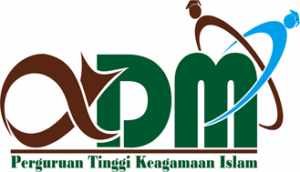Examining components of attitudes towards mathematics among senior secondary school students in Nigeria
Abstract
The study investigated the components of attitudes towards mathematics among 1500 senior secondary school students from 20 co-educational public schools in the Lagos State of Nigeria using the quantitative research method within the blueprint of the descriptive survey design. Data collected using the component of attitudes toward mathematics scale (Cronbach alpha coefficient α=0.96) were analysed using the descriptive statistics of frequency count, percentage, mean, and standard deviation and inferential statistics of independent samples t-test and factor analysis. Findings revealed that senior secondary school students’ level of components of attitudes toward mathematics was at a moderate level. Components of attitudes towards mathematics scale was a multi-dimensional construct consisting of cognitive, behavioural and affective elements. Gender differences in components of attitudes towards mathematics among senior secondary school students were significant and in favour of the males. Based on this study, it was thus, recommended that future studies in Nigeria and elsewhere should investigate further the confirmatory factor analytic structure of the components of attitudes towards mathematics scale among senior secondary school students.
Keywords
Full Text:
PDFReferences
Ai, X. (2002). Gender differences in growth in mathematics achievement: Three-level longitudinal and multilevel analyses of individual, home, and school influences. Mathematical Thinking and Learning, 4(1), 1-22. doi.org/10.1207/S15327833MTL0401_1.
Asante, K. (2012). Secondary students' attitudes toward mathematics. IFE PsychologIA, 20(1), 121–133.
Attard, C. (2012). Engagement with mathematics: What does it mean and what does it look like? Australian Primary Mathematics Classroom, 17(1), 9–12.
Awofala, A. O. A. & Akinoso, S. O. (2017). Assessment of psychometric properties of mathematics anxiety questionnaire by preservice teachers in the south-west, Nigeria. ABACUS: The Journal of the Mathematical Association of Nigeria, 42(1), 355-369.
Awofala, A. O. A. & Lawani, A. O. (2020). Increasing mathematics achievement of senior secondary school students through differentiated instruction. Journal of Educational Sciences, 4(1), 1-19.
Awofala, A. O. A. (2008a). Women and the learning of mathematics. African Journal of Historical Sciences in Education, 2(1), 195–213.
Awofala, A. O. A. (2008b): Sex, blood type and the relationship between mathematics self-efficacy and achievement in senior secondary school. African Journal of Historical Sciences in Education, 2(2), 94 – 104.
Awofala, A. O. A. (2016a). Examining pre-service mathematics teachers’ attitudes toward mathematics. Nigerian Journal of Curriculum Studies, 23, 292-300.
Awofala, A. O. A. (2016b). Effect of personalisation of instruction on students’ motivation to learn mathematics word problems in Nigeria. Turkish Journal of Computer and Mathematics Education, 7(3), 486-509. DOI: 10.16949/turkbilmat.267339.
Awofala, A. O. A. (2017a). Attitudes towards mathematics as predictors of preservice teachers’ achievement in senior secondary school chemistry. Bulgarian Journal of Science and Education Policy (BJSEP), 11(2), 384-416.
Awofala, A. O. A. (2017b). Assessing senior secondary school students’ mathematical proficiency as related to gender and performance in mathematics in Nigeria. International Journal of Research in Education and Science (IJRES), 3(2), 488-502. DOI: 10.21890/ijres.327908.
Awofala, A. O. A., Arigbabu, A. A. & Awofala, A. A. (2013). Effects of framing and team individualised instructional strategies on senior secondary school students’ attitudes toward mathematics. Acta Didactica Napocensia, 6(1), 1-22.
Awofala, A. O. A., Lawal, R. F., Isiakpere, B. J., Arigbabu, A. A., & Fatade, A. O. (2020). COVID-19 pandemic in Nigeria and attitudes towards mathematics homeschooling among pre-tertiary students. Nigerian Online Journal of Educational Sciences and Technology, 1(2), 57-70.
Cattell, R.B. (1966). The scree test for the number of factors. Multivariate Behavioral Research, 1, 245–276.
Chiesi, F. & Primi, C. (2015). Gender differences in attitudes toward statistics: Is there a case for a confidence gap?. Konrad Krainer; Nada Vondrová. CERME 9 - Ninth Congress of the European Society for Research in Mathematics Education, Feb 2015, Prague, Czech Republic. pp.622-628, Proceedings of the Ninth Congress of the European Society for Research in Mathematics Education.
Di Martino, P., & Zan, R. (2011). Attitude towards mathematics: A bridge between beliefs and emotions. The International Journal on Mathematics Education, 43(4), 471–482.
Eshun, B. (2004). Sex-differences in the attitude of students towards Mathematics in secondary schools. Mathematics Connection, 4, 1–13. Doi.org/10.4314/mc.v4i1.21495.
Garner-O’Neale, L & Cumberbatch, A. (2015). Attitudes of chemistry undergraduate students towards mathematics at the UWI, cave hill campus. Caribbean Educational Research Journal, 3(2), 33-45.
Gorsuch, R. L. (1983). Factor analysis. Mahwah, NJ: Lawrence Erlbaum.
Han, S. Y., & Carpenter, D. (2014). Construct validation of student attitude toward science, technology, engineering and mathematics project-based learning: The case of Korean middle-grade students. Middle Grades Research Journal, 9(3), 27–41.
Hannula, M. (2002). Attitude towards mathematics: Emotions, expectations and values. Educational Studies in Mathematics 49, 25-46. doi.org/10.1023/A:1016048823497.
Henson, R. K. (2001). Understanding internal consistency reliability estimates: A conceptual primer on coefficient alpha. Measurement and Evaluation in Counseling and Development, 34, 177–189.
Hoang, T. N. (2008). The effects of grade level, gender, and ethnicity on attitude and learning environment in mathematics in high school. International Electronic Journal of Mathematics Education, 3(1), 47-59.
Ingram, N. (2015). Students’ relationships with mathematics: Affect and identity. In M. Marshman, V. Geiger, & A. Bennison (Ed.), Mathematics education in the margins (Proceedings of the 38th annual conference of the Mathematics Education Research Group of Australasia) (pp. 301–308). Sunshine Coast, Australia: MERGA.
Kahle, J. B. (2003). The disadvantaged majority: Science education for women. (ERIC document reproduction service No. ED 242 561).https://files.eric.ed.gov/fulltext/ED242561.pdf
Kaiser, H. F. (1960). The application of electronic computers to factor analysis. Educational and Psychological Measurement, 20, 141-151. doi: 10.1177/001316446002000116.
Kanai, K., & Norman, J. (1997). Systemic reform evaluation: Gender differences in student attitudes toward science and mathematics. In Proceedings of the 1997 Annual International Conference of the AETS. ERIC ED (Vol. 405220).
Kele, A., & Sharma, S. (2014). Students' beliefs about learning mathematics: Some findings from the Solomon Islands. Teachers and Curriculum, 14, 33–44.
Kline, R. (1998). Principles and practice of structural equation modelling. New York: Guilford Press.
Klinger, C. M. (2006). Challenging negative attitudes, low self‐efficacy beliefs and math‐anxiety in pre-tertiary adult learners. In M. Horne, and B. Marr, (Eds) Connecting voices: Practitioners, researchers and learners in adult mathematics and numeracy (pp. 164‐171).
Köğce, D., Yıldız, C., Aydın, M. & Altındağ, R., (2009). Examining elementary school students’ attitudes towards mathematics in terms of some variables. Procedia Social and Behavioral Sciences, 1(1), 291-295.
Kurth, K. (2007). Factors which influence female’s decision to remain in science (Exit Project S 591). South Bend, IN Indiana University. (ERIC document reproduction service No. ED288739). https://eric.ed.gov/?id=ED288739.
Kyriacou, C., & Goulding, M. (2006). A systematic review of strategies to raise pupils' motivational effort in Key Stage 4 mathematics. London: EPPI Centre, Institute of Education.
Lee, K. J., & Anderson, J. A. (2014). Who is really interested in mathematics? An investigation of lower secondary students' mathematical role models. In J. Anderson, M. Cavanagh, & A. Prescott (Eds.), Curriculum in focus: Research guided practice.(Proceedings of the 36th Annual Conference of the Mathematics Education Research Group of Australasia, pp. 397-404). Sydney: MERGA.
Lim-Teo, S. K., Ahuja, O. P., & Lee, P. Y. (2000). Attitude of junior college and tertiary students to calculus. PRIMUS, 10(2), 123-142.
Lineros, J., & Hinojosa, M. (2012). Theories of learning and student development. National Forum of Teacher Education Journal, 22(3), 1–5.
Lockheed, M.E., Thorpe, M., Brooks-Gunn, J., Casserly, P., & McAloon, A. (2005). Sex and ethnic differences in middle school mathematics science and computer science. What do we know? Princeton, NJ: Educational Testing Service.
Mata, M., Monteiro, V., & Peixoto, F. (2012). Attitudes towards mathematics: Effects of individual, motivational, and social support factors. Child Development Research, 2012, 1-10. http://dx.doi.org/10.1155/2012/876028.
Mensah, J. K., Okyere, M., & Kuranchie, A. (2013). Student attitude towards mathematics and performance: Does the teacher attitude matter? Journal of Education and Practice, 4(3), 132–139.
Meyer, M.R., Koehler, M.S. (1990). International influences on gender differences in mathematics. In: Fennema, E., & G.C. Leder (Eds.), Mathematics and gender. (pp. 60-95). New York, NY: Columbia University Press.
Mohamed, L & Waheed, H. (2011). Secondary students’ attitude towards mathematics in a selected school of Maldives. International Journal of Humanities and Social Science, 1(15), 277–281.
Mohd, N., Mahmood, T. F. P. T., & Ismail, M. N. (2011). Factors that influence students in mathematics achievement. International Journal of Academic Research, 3(3), 49-54.
Nicolaidou, M., & Philippou, G. (2003). Attitudes towards mathematics, self-efficacy and achievement in problem-solving. In European Research in Mathematics Education III (pp.1-11). Pisa: University of Pisa.
Oakes, J. (2000). Opportunities, achievement, and choice: Women and minority students in science and mathematics. Review of Research in Education, 16, 153-222.
Recber, S. Isiksal, M. & Koç, Y. (2018). Investigating self- efficacy, anxiety, attitudes and mathematics achievement regarding gender and school type. Anales de Psicología, 34(1), 41-51. doi.org/10.6018/analesps.34.1.229571
Sanchal, A., & Sharma, S. (2017). Students’ attitudes towards learning mathematics: impact of Teaching in a sporting context. Teachers and Curriculum, 17(1), 89-98.
Schiefele, U., & Csikszentmihalyi, M. (1995), Motivation and ability as factors in mathematics experience and achievement. Journal for Research in Mathematics Education, 26(2), 163-181.
Tabachnick, G., & Fidell, L. (2007). Using multivariate statistics (5th ed.). Boston, MA: Pearson Education, Inc.
Watt, H. M. G. (2007). A trickle from the pipeline: Why girls under participate in maths. Professional Educator, 6(3), 36-41.
Yee, L. S. (2010). Mathematics attitudes and achievement of junior college students in Singapore. In L. Sparrow, B. Kissane, & C. Hurst (Eds.), Shaping the future of mathematics education: Proceedings of the 33rd annual conference of the Mathematics Education Research Group of Australasia (pp. 681-689). Fremantle: MERGA.
Zan, R., & Martino, P. D. (2007). Attitudes towards mathematics: Overcoming positive/negative dichotomy. The Montana Mathematics Enthusiasts Monograph, 3, 157-168.
DOI: https://doi.org/10.18860/ijtlm.v3i2.9496
Refbacks
- There are currently no refbacks.
Copyright (c) 2022 International Journal on Teaching and Learning Mathematics

This work is licensed under a Creative Commons Attribution-NonCommercial-ShareAlike 4.0 International License.
Indexed by :
.png)
.jpg)
.png)

.jpg)


